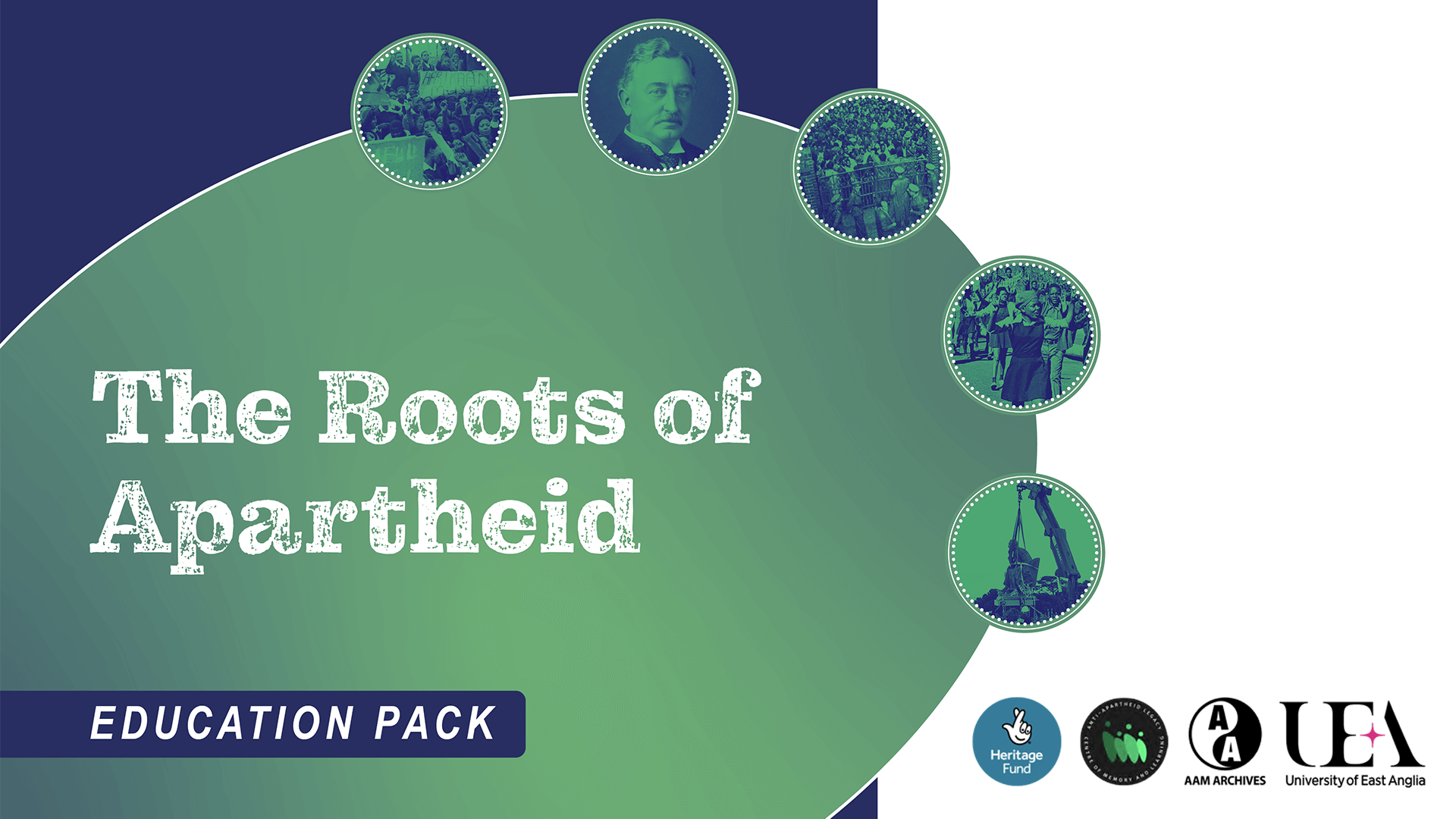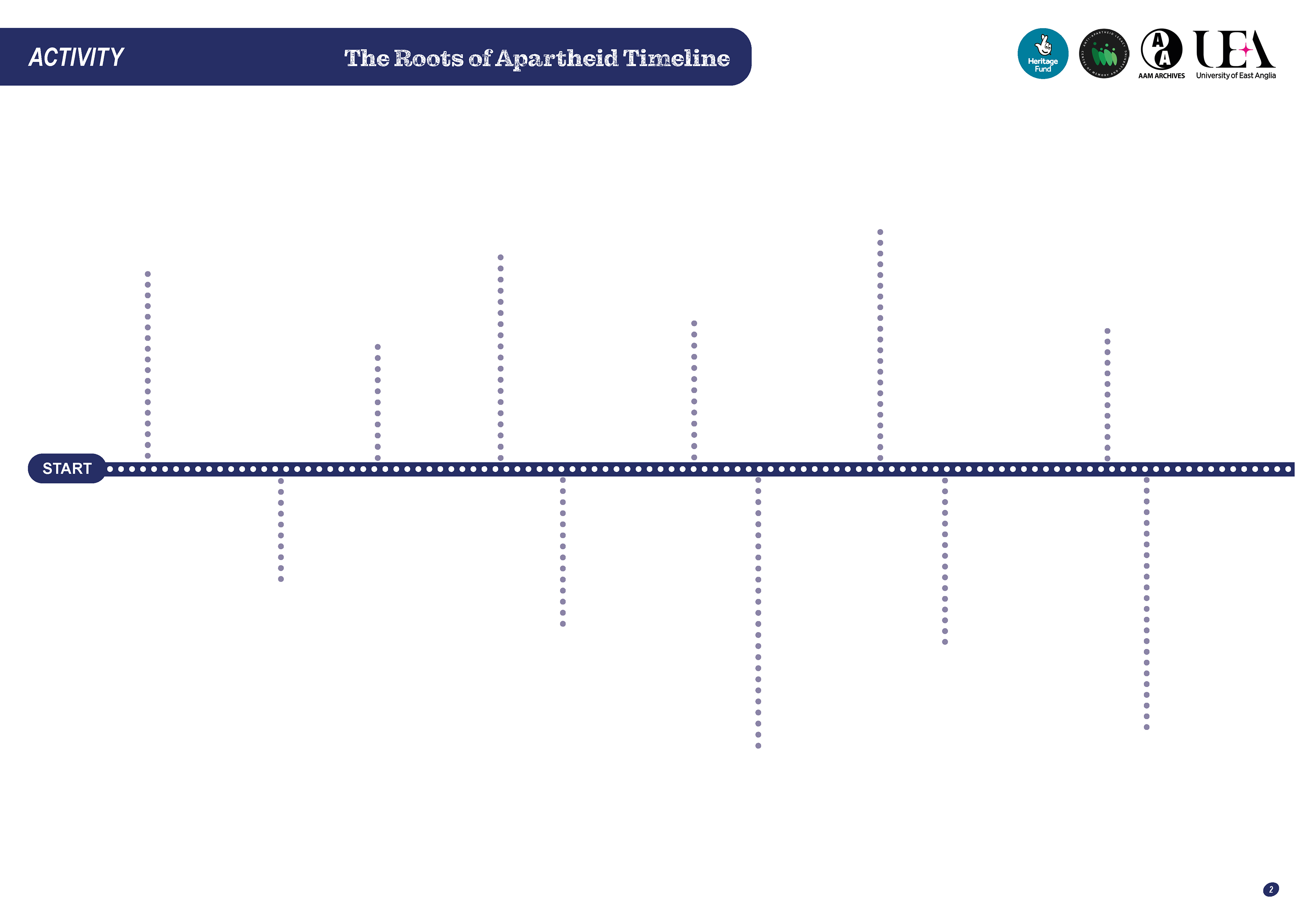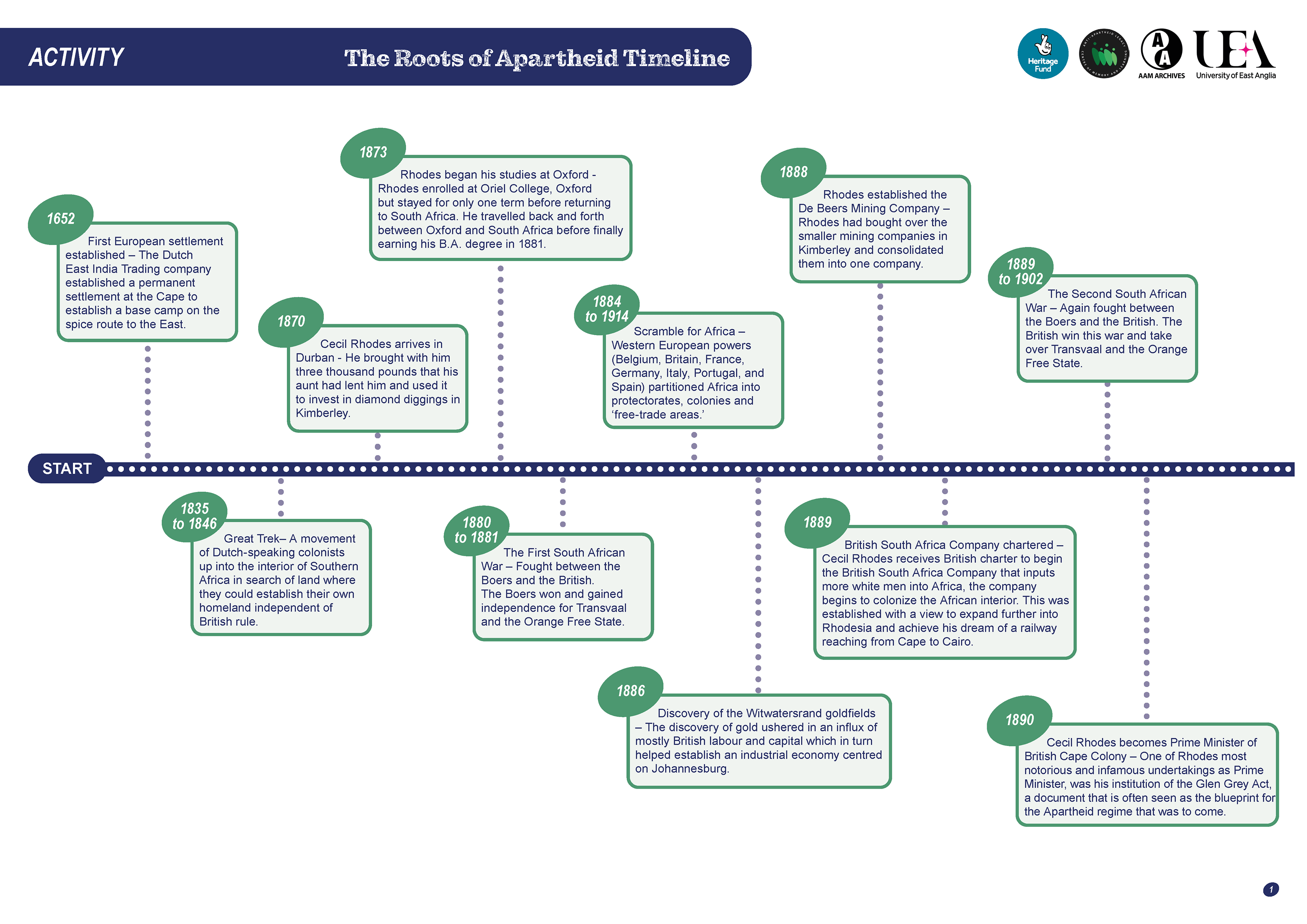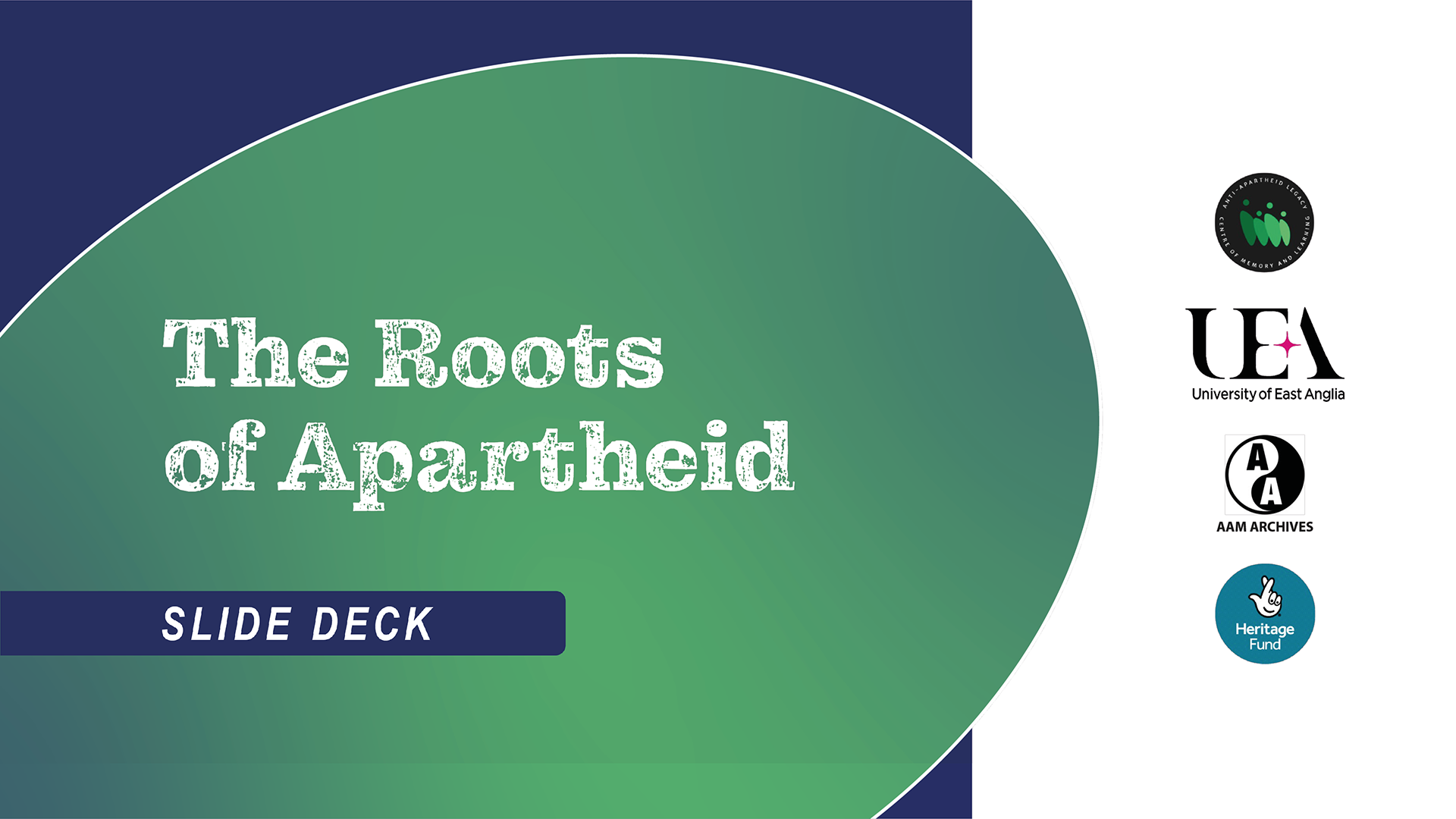
The system of apartheid in South Africa was one of the most notorious evils of the twentieth century. But where did apartheid come from? What were its roots? And what role did the British Empire play in enshrining racial segregation in the country?
This resource traces the origins of apartheid, while also examining how South Africans challenged this system and its legacies. Focusing on the development of colonialism and white settler colonialism in Southern Africa, the significance of the Soweto Uprising and the Black Consciousness Movement in the 1970s, and the recent Rhodes Must Fall protests – this resource is designed to encourage students to think about how apartheid was connected to other forms of imperialism, while also reflecting on the relationship between the past and the present. Ultimately, it asks how we might do justice to Nelson Mandela’s insistence that, “To be free is not merely to cast off one’s chains, but to live in a way that respects and enhances the freedom of others.”
Written with KS4 in mind, these resources are designed to be accessible and useful for KS5 and KS3 students alike and provide an example lesson plan for teachers wishing to use the resources in class (see Slide Deck).
Resource structure:
- Introductory PDF “The Roots of Apartheid”
- Activity: Roots of Apartheid Timeline – PDF
- Blank Timeline Sheet- PDF
- Example Timeline- PDF
- “The Roots of Apartheid” Slide Deck (available in PowerPoint or PDF)
Introductory PDF
Activity Resources
Classroom Resource
This education pack has been developed collaboratively between the Anti-Apartheid Legacy: Centre of Memory and Learning and the University of East Anglia. Many of the images and linked documents are supplied with kind permission of project partners, The Anti-Apartheid Movement Archives. Other sources are referred to at the relevant places in the packs.
The development of the resources has been made possible with generous support from the National Lottery Heritage Fund and UEA’s Impact Fund.






